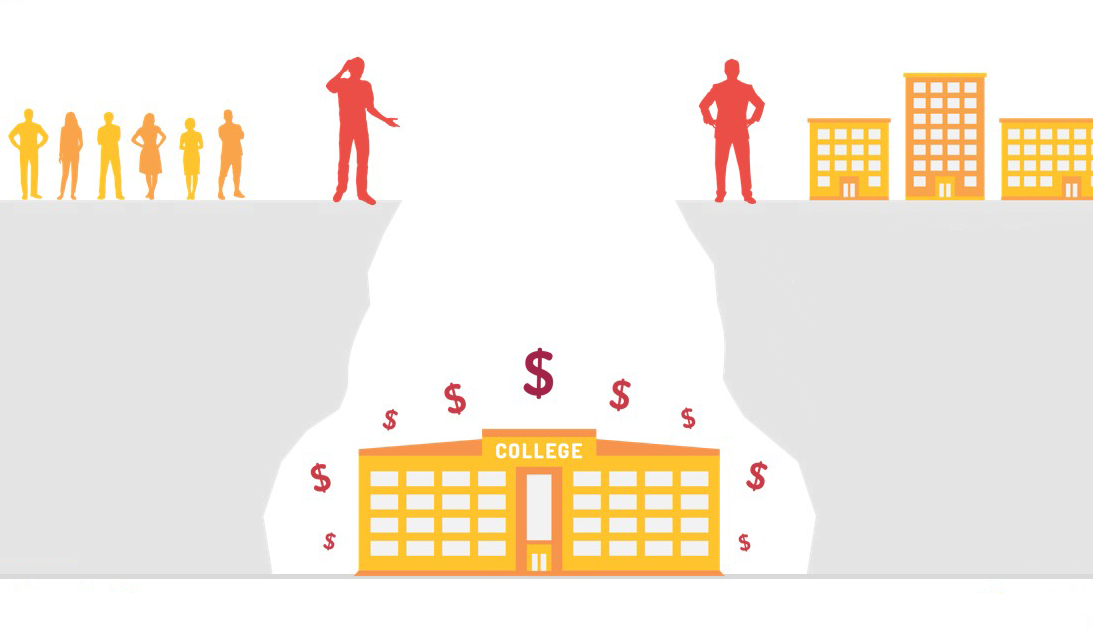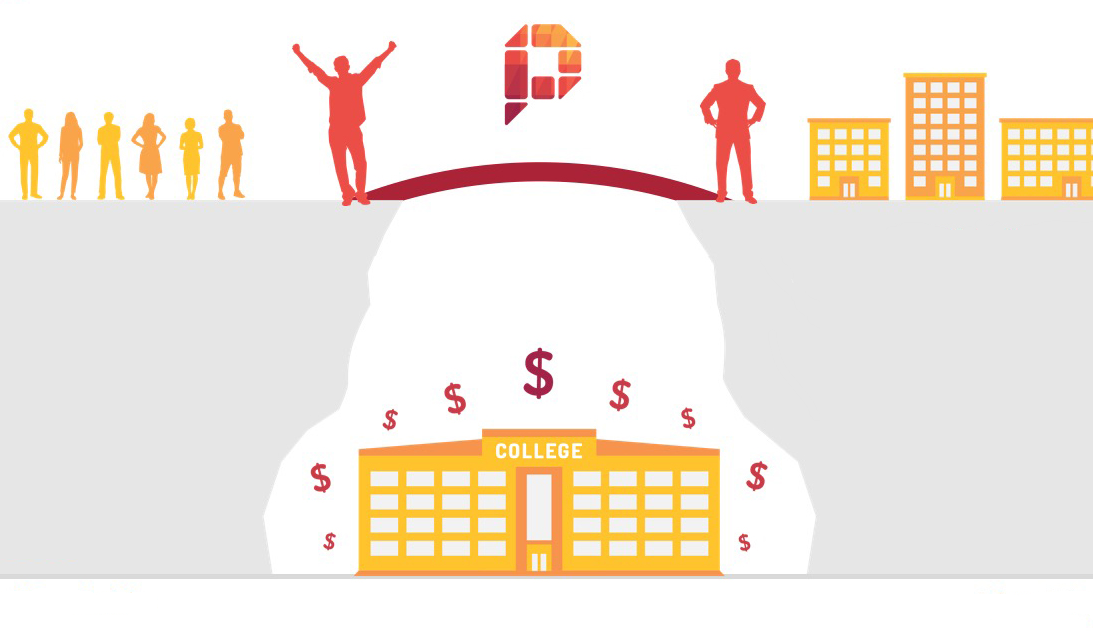What’s the real cost of college as a path to a career?
It’s not just the time, the boredom, the low quality, or the money. It’s also the opportunity cost (what else you could be doing) and the cost of entering the professional world with few valuable skills and a mistaken belief that you’re prepared.
This great article in TechCrunch details how universities created the skills gap – the gap between what the market demands and what grads actually have. There is also a perception gap. Employers are twice as likely to say that grads are not prepared than the grads themselves – students think college is preparing them for a career, but the market begs to differ.
82% of grads have no job lined up upon graduation. 62% of degree holders are currently either unemployed or working jobs that do not require a degree.
New numbers on student debt just came out, and it’s at a record-breaking $37k per student average.
My colleagues and I ran some back of the envelope numbers comparing college to the Praxis experience. It’s a 12-month experience (6-month professional bootcamp + 6-month paid apprenticeship), and we wanted to see how it stacks up.
(I should make clear that Praxis is not just a college replacement or alternative. We also love to help college grads that want a better start to their career than blasting out resumes and hoping for something decent.)
Being conservative, assuming pay well below what our grads actually average, and no raises for 4+ years, and not factoring in interest payments on student loans, we sketched out a little comparison:
Praxis
- Length: 12 months
- Cost: $11k tuition – $14,400 earnings during the program = ($3,400)
- Debt: $0
- Job after graduation: 96%
- Starting salary: Let’s say $40k ($50k is average)
- Net benefit over 5 years: $2,400 (in program) + $170,000 (at 40k, if no raises for 4 years after graduation) = $173,400
College
- Length: 5+ years on average
- Cost: $100k (minimum)
- Debt: $37k average
- Job after graduation: ??? (82% of grads do not have a job lined up. 62% of degree holders have no job or a job that does not require a degree)
- Opportunity cost: $173,400 (assuming you had done Praxis instead)
- Net benefit over 5 years: -$37k debt -$173,400 opportunity cost = ($210,400)
I’ll be the first to tell you that averages and aggregates are not a guide to your life decisions. None of this can tell you what’s the best path for you. There is no sense in remarks like, “College is a good/bad idea for young people”, and the same goes for Praxis. There’s no answer for “young people” in general.
All that matters is each individual.
Take the time to examine your own life, goals, situation, and what makes you excited and fulfilled. Consider what the next year or two or five could be like for you given your various options. Don’t just follow the dominant path or rebel against it because you saw some numbers somewhere.
Don’t do stuff you hate. Don’t do what others want or expect. Don’t do what’s supposed to give you prestige. Do what makes you more of who you want to be every day.

